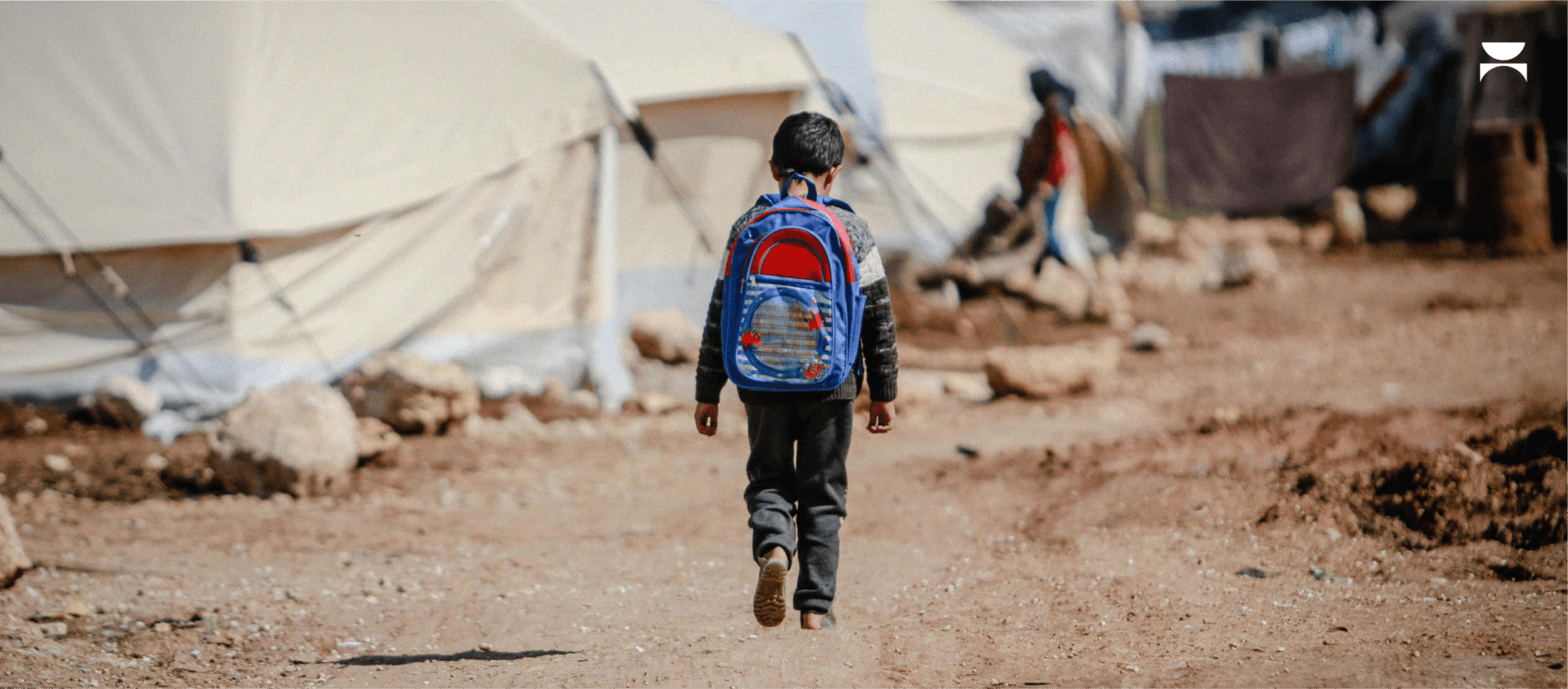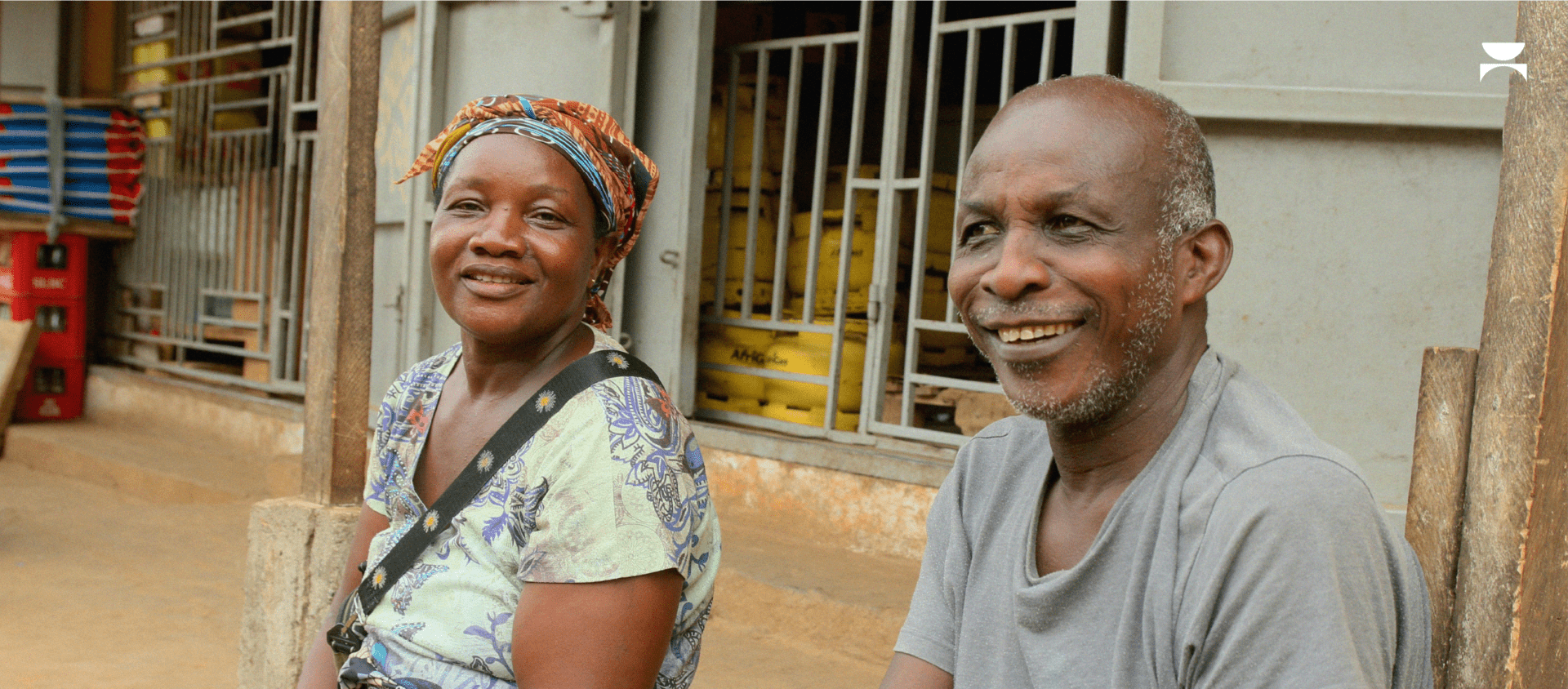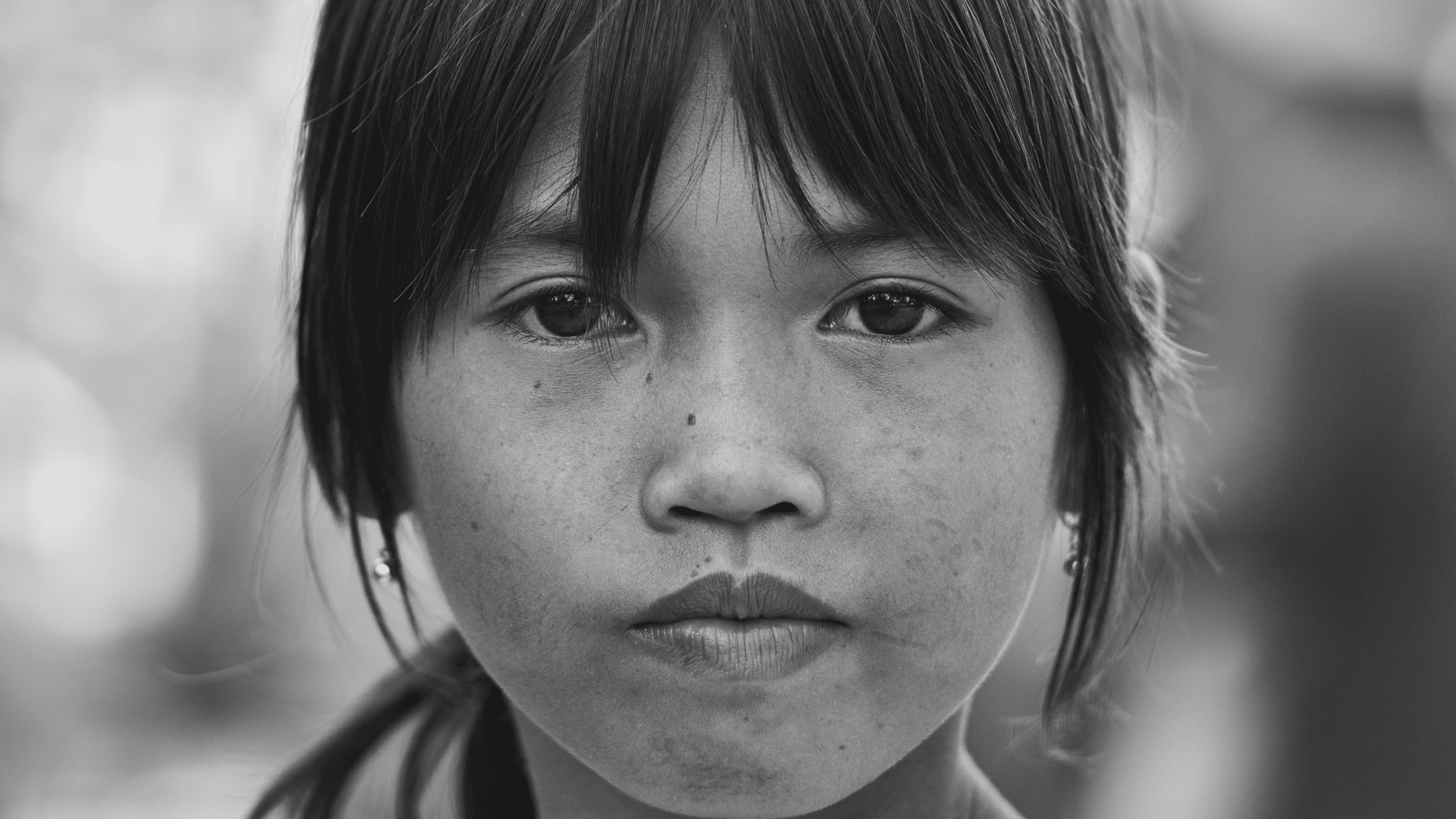The world is experiencing the worst hunger and famine crisis in a generation.
Conflict is a leading driver of hunger: 8 out of 10 of the world’s worst hunger crises are caused by conflict. But conflict does not happen in isolation. Higher costs and rising inflation make conflict more likely because wages fall and the potential gain from conflict rises.
And conflict is not the only reason for hunger. Political instability, environmental challenges, economic disparities, and poor governance are all driving hunger crises and contributing to high levels of malnutrition around the world. Vulnerable people, particularly children, suffer the most when hunger strikes. Children are impacted most from malnutrition.
It is alarming to consider these problems that seem insurmountable.
But it is also where hope lies. Because whatever is done to address one of these will impact the others. The solutions are as interconnected as the crises.

Since January, Bread for the World members have made progress against hunger even while it continues to rise, knowing that each step forward has impact on connected challenges.
Success in 2024
Passage of $9 Billion in Emergency Humanitarian Assistance

This April, Congress passed, and President Biden signed into law, more than $9 billion in emergency humanitarian assistance. Without it, millions of people, especially children, would have been at risk of dying.
This assistance funded food, nutrition, shelter, water, medical supplies, and other critical relief to tens of millions of people who live in multiple countries and regions on the verge of, or now experiencing, severe malnutrition and famine. The legislation also helped sustain critical bilateral support and multilateral financing to countries in crisis including hunger hotspots such as Sudan, Somalia, Armenia, Haiti, and Ethiopia.
Bread advocacy on this issue began in 2023 and continued over more than seven months alongside more than seventy-five partners, and through a Hunger Hotspots briefing series to educate leaders on country-specific needs, DC-based advocacy, and field mobilization, to reach the goal. As USAID Administrator Samantha Power said of Bread’s efforts, “Through months of uncertainty, you maintained an unrelenting voice as you asked just one thing: that we help feed the people who need it most.”
Passage of FY2024 Appropriations Bills with Funding for Key Domestic and International Nutrition Programs

In March, Congress passed legislation to fund the government through 2024 that funds essential domestic and international nutrition priorities.
The legislation fully funds vital domestic child nutrition programs including the Special Supplemental Nutrition Program for Women, Infants, and Children (WIC), the National School Lunch Program, the School Breakfast Program, and Summer EBT. These programs play a critical role in ensuring our nation’s children receive the nutrition they need to lead healthy and productive lives. The legislation also fully funds the Supplemental Nutrition Assistance Program (SNAP), our nation’s most important program addressing hunger.
In addition, the legislation provides funding for the international nutrition programs Food for Peace and the McGovern-Dole Food for Education and Child Nutrition Program, and modest funding increases for global nutrition. These initiatives are the pillars of our efforts to address hunger and malnutrition globally. While funding for some key programs decreased slightly from 2023 levels, the legislation did not include the 70 percent cuts that had been proposed last year, and the increase in global nutrition funding will help ensure many more women and children receive critical assistance.
Bread generated thousands of letters to Congress advocating for anti-hunger provisions in the budget, especially WIC and Food for Peace. We co-led an interfaith sign-on letter urging WIC funding. After the two minibus funding packages passed, Bread sent letters to leadership in the House and Senate thanking them for prioritizing nutrition and encouraging them to continue working to achieve a more food-secure world as they take up FY2025 appropriations.
Progress in 2024 That Bread Will Continue to Move Forward in 2025
Farm Bill

Bread advocated this year to protect key anti-hunger farm bill programs and improve others. Bread worked to protect SNAP from proposed funding cuts of $31 billion and sought to preserve necessary and hard-won flexibility in international food aid programs including Food for Peace. Bread also generated support for hunger-related improvements to the farm bill including a NAP-to-SNAP pathway for the U.S. citizens of Puerto Rico, an expansion of the Gus Schumacher Nutrition Incentive Program (GusNIP, which provides incentives to low-income families to purchase of fruits and vegetables), and better food date labeling.
Bread members organized in their churches, campuses, and communities to raise awareness and convince their members of Congress to support a healthy, sustainable, equitable farm bill. Congresswoman Jahana Hayes (D-CT) read into the Congressional Record Bread’s farm bill priorities. Bread led a sign-on letter from 17 faith-based organizations urging Congress to expediently pass a full farm bill that protects and strengthens key anti-hunger programs that generated engagement from more than 50 Republican and Democratic offices, and endorsed a bi-partisan resolution on the 70th anniversary of Food for Peace supporting the renewal of the program.
It is possible that Congress will pass a new farm bill before the current one expires in 2024. Between now and year-end, Bread will urge Congress to unite across party lines and pass an updated farm bill that includes these anti-hunger priorities.
Humanitarian Aid Funding in 2025 Appropriations

Bread opposed proposed funding cuts to development and humanitarian assistance programs included in the House of Representative’s Fiscal Year 2025 State, Foreign Operations, and Related Programs (SFOPs) Appropriations Act, including cuts to the United States Agency for International Development (USAID) and a number of institutions at the United Nations such as the United Nations Children’s Fund (UNICEF).
When the world is experiencing the greatest hunger and famine crisis in a generation, cutting funding for these critical organizations and programs would impact hundreds of millions of lives, particularly women and children.
This year, Bread led and joined successful efforts to fend off proposed cuts, including major amendments that would have cut entirely or severely walked-back programs that Bread members have supported for decades, and some policies designed to make foreign aid more efficient that Bread helped bring into being.
As Congress again looks to finalize government funding for FY2025, Bread will urge lawmakers to ensure humanitarian assistance programs are adequately funded to at least 2024 levels and reject amendments that would cut funding for or otherwise hinder the lifesaving work of USAID, the UN, and other partner organizations. We will also continue to support and encourage the majority of House members who voted down many of the most harmful amendments that were offered, including amendments that would have defunded USAID and international disaster relief assistance.
Child Tax Credit

The House of Representatives passed a child tax credit (CTC) expansion in the bipartisan, bicameral Tax Relief for American Families and Workers Act, and Bread worked to secure support in the Senate for a vote in that chamber.
As a group, families with children are more likely to be food insecure than families without children. The risks are even higher for Black families, Latino/a families, Native American families, and families with single mothers, among others. In just the first year alone, an expanded CTC is projected to lift as many as 400,000 children out of poverty. It would benefit approximately sixteen million children whose families currently receive partial credit or no credit at all because their incomes are too low.
Bread advocacy contributed to the House passage of the bill and was instrumental to bringing it to the Senate floor through advocacy to key Senators, alone and with partners, and through more than 4,500 letters from Bread advocates. Though the bill failed to pass the Senate in 2024, Bread advocacy to center the child tax credit in congressional discussions this year has set a firm foundation for future action as Congress looks to negotiate a new tax bill in 2025.
Increased IDA Pledge

President Biden pledged a record $4 billion to the World Bank’s International Development Association (IDA). The commitment is 14 percent higher than the U.S.’ last contribution.
Through grants and low-interest-rate-loans, IDA finances development projects in low-income countries that strengthen economies, promote child development, restore and expand access to quality early childhood services, and improve agricultural productivity. Many countries who receive these grants “graduate” from the program and become IDA donors to help other countries achieve similar success. A pledge to IDA is an investment to address the drivers of hunger and malnutrition.
Bread engaged in policy analysis, public awareness-raising, and advocacy to encourage a strong U.S. pledge and celebrated the early commitments made by other countries. In the coming year, Bread will encourage Congress to fulfill the U.S. pledge.
Additional Efforts
Vote to End Hunger

In 2024, Bread encouraged anti-hunger advocates to center hunger in their voting decisions and provided a voting guide to help people discern among candidates in local and national elections. More than 1,500 people signed our Vote to End Hunger pledge. Bread activists met with forty-four candidates for office, where we shared our 2025 advocacy priorities and asked them what they would do, if elected, to help end hunger.
As we head into the new year, Bread will revisit the candidates we met with pre-election who were elected. We will also reach out to every new member of Congress to introduce our anti-hunger priorities, begin relationships, and encourage action on hunger. Bread looks forward to working with the new Administration and Congress to ensure all children, both in the U.S and around the world, have access to the nutrition they need to flourish.
Summer EBT in Effect

This summer, a law that Congress passed last year went into effect: the Summer Electronic Benefit Transfer Program for Children (Summer EBT), which address the gap between the number of children served during the school year and those served over the summer.
Access to Summer EBT can be the difference between children getting the meals they need to stay healthy and thrive or going hungry. Approximately thirty million children in the U.S. are eligible for the program. Thirty-five states, the District of Columbia, all five U.S. territories, and four Indian Tribal Organizations have adopted Summer EBT.
Bread members advocated for this program in 2023 and in previous years. We are delighted to see it go into effect and how it is impacting children across the country. Looking ahead, Bread encourages every state to take advantage of the program.
What’s Next?

Bread celebrates the thousands of Bread supporters and anti-hunger advocates who wrote emails and letters, made phone calls, met with their members of Congress, connected with partners, and spoke up in a hundred different ways in support of domestic and international nutrition programs this year.
We underscore, and take as direction, that this year’s two clear victories were achieved on a bipartisan basis. Working in a bipartisan manner will be top of mind as we work with the new Administration and Congress next year. We are eager to connect with our newly elected leaders to see where we can address hunger together.
In 2024, we made progress in an election year. In 2025, we know that our persistence will continue to yield results that move us closer to the end of hunger.
Next year we will celebrate Bread’s 50th anniversary. We’ll center our efforts on Nourish Our Future, a campaign focused on child hunger. We invite you to join us in Nourish Our Future.
At Bread, we “thank God every time [we] remember you” (Philippians 1:3). Thank you for being a part of Bread for the World.



